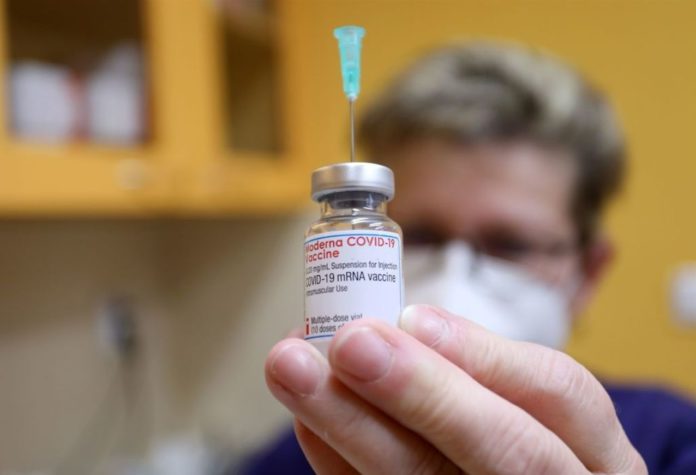According to one source, data suggests that people who receive Moderna may have a 212 times higher incidence of myocarditis than those who receive the Pfizer-BioNTech vaccine
US health officials are looking into evolving reports that the Moderna coronavirus vaccine may be associated with an increased risk of a heart disease known myocarditis in younger folks than originally thought, according to two individuals associated with the review, who stressed that the side effect is still likely to be uncommon.
The Food and Drug Administration and the Centers for Disease Control and Prevention are conducting research into Canadian data suggesting that the Moderna vaccine may pose a greater danger to young people than the Pfizer-BioNTech vaccine, particularly for males under the age of 30. Additionally, officials are assessing data from the United States to evaluate whether there is evidence of an elevated risk of Moderna infection in the American population.
The two individuals who disclosed the probe declined to be named in order to discuss an ongoing review for which they were not allowed to speak.
One source familiar with the review highlighted that it is soon to draw any conclusions. According to the individual, the agencies must conduct extra planning in advance whether to publish any new or altered warnings or recommendations regarding the situation. The FDA updated a warning label in June to the Pfizer and Moderna shots — both of which are known as mRNA vaccines — regarding an elevated risk of myocarditis.
“We have not come to a conclusion on this,” one of the people familiar with the investigation said.
“The data are not slam bang.”
Moderna did not reply immediately to a request for comment.
Although the FDA will not touch on internal meetings or conversations, spokesperson Stephanie Caccomo stated, “we can say that FDA is absolutely committed to reviewing data as it becomes available to us. We have previously communicated about myocarditis and COVID-19 vaccines and if new information changes the risk/benefit profile, we will update the public accordingly.”
In a statement, the CDC said its “Advisory Committee on Immunization Practices has and continues to review reports of myocarditis and pericarditis following COVID-19 mRNA vaccination. CDC, FDA, and our vaccine safety partners are actively monitoring these reports, including reviewing data and medical records, to learn more and understand any relationship to COVID-19 mRNA vaccination.”
According to one source, the Canadian data, which was submitted by the government of that nation, suggests that people who receive Moderna may have a 212 times higher incidence of myocarditis than those who receive the Pfizer-BioNTech vaccine. Myocarditis is a cardiac inflammation.
The myocarditis side effect is extremely rare and even if it is more likely in people receiving the Moderna vaccine, it probablyis still very uncommon. Officials want to be careful not to cause alarm among the public, especially when officials are trying to persuade more people to be vaccinated amid a surge of cases fueled by the fast-moving Delta variant.
In late June, federal health experts stated that there is a “likely association” seen between Moderna and Pfizer-BioNTech vaccines and an increased incidence of rare cardiac illness in teenagers and young people, the strongest allegation to date.
However, at a June 24 conference, the CDC’s vaccine advisors stated that contracting covid-19, the virus’s sickness, puts a person at considerably greater risk of heart inflammation and other major medical problems than the likelihood of developing myocarditis through vaccination.
Following the June meeting, the CDC and the Department of Health and Human Services, along with 15 of the country’s leading medical and public health organisations, including the American Academy of Pediatrics, the American College of Obstetricians and Gynecologists, the American Medical Association, and the American Nurses Association, issued a joint statement saying that they “strongly encourage everyone 12 and older” to get the jabs because the benefits significantly outweigh the risks.
